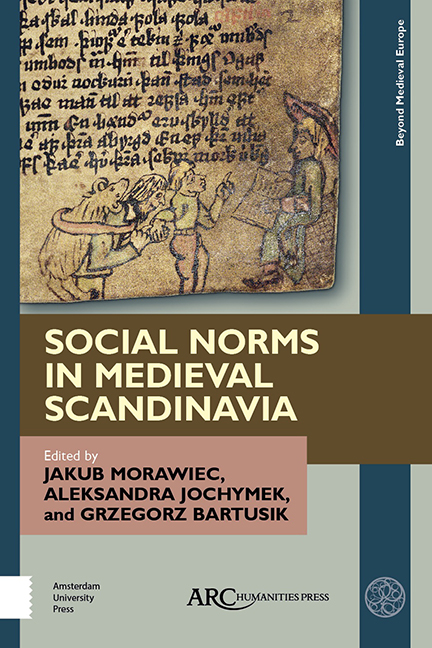Chapter 3 - Being Óðinn Bursson: The Creation of Social and Moral Obligation in Viking Age Warrior-Bands through the Ritualized, Oral Performance of Poetry—The Case of Grímnismál
Published online by Cambridge University Press: 20 November 2020
Summary
THE ORAL NATURE of Old Norse poetry and indeed Old Norse society is almost a commonplace within scholarship today. Recently the idea of the performance aspect of these poems has been re-examined and re-actualized by the folklorist and dramaturg Terry Gunnell, who aptly terms his approach “performance archaeology.” While Gunnell's theories have been criticized, his research is nonetheless thought-provoking and a valuable contribution to academic discourse, as the performance aspect Gunnell highlights is entirely in keeping with oral poetries throughout the world. Indeed, we may benefit from viewing much of Old Norse poetry as a form of oral-derived poetry, which the late scholar of orality John Miles Foley terms “voices from the past”; that is, oral-poetic traditions that are long dead and transferred on to vellum “leaving us with textual shards of a once-living work of verbal-art.” Taking this stance allows us to draw inspiration from orality research, which prompts us to investigate any given oral tradition according to its own internal oral-poetic rules, language, register, and idiomatic meaning systems in order to comprehend the tradition in its own right and also to pay heed to the context of any given oral poem: “The performance, the audience, the poet […] the ritual and the myriad other aspects of the given poem's reality.” What I propose to examine in this article, and what has not been sufficiently researched and reassessed in recent times, is the possible ritual framework behind these proposed oral performances in pre-Christian Nordic religion. The interest in the possible rituals that may lie behind some Old Norse eddic poetry is not new, the prime example being Dame Bertha Phillpotts's seminal 1920 work. In this book, Phillpotts concluded that several of the extant eddic poems represented “actual shattered remnants of ancient religious drama.” Phillpotts, however, seems to be overly emphatic in her certainty. Being heavily inspired by the Cambridge myth-and-ritual school and their assumption that Greek drama evolved from a grand seasonal vegetation ritual pattern, Phillpotts tried to infer the existence of the same pattern in a Nordic context, filling in the blanks, so to say, with lost sources and assumed earlier, different versions of poems that did not fit the scheme.
- Type
- Chapter
- Information
- Social Norms in Medieval Scandinavia , pp. 51 - 74Publisher: Amsterdam University PressPrint publication year: 2019



